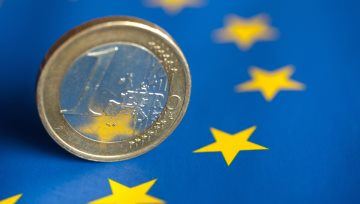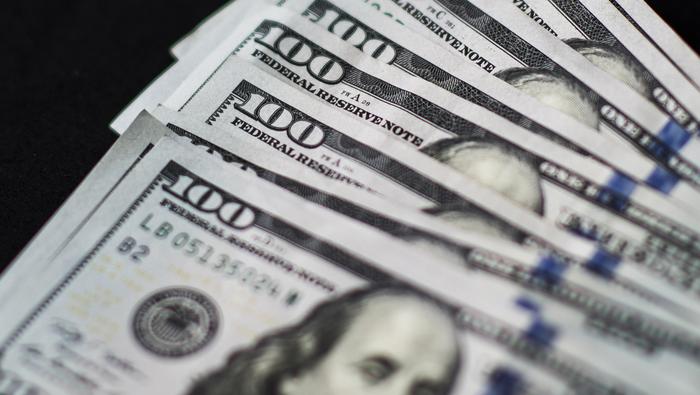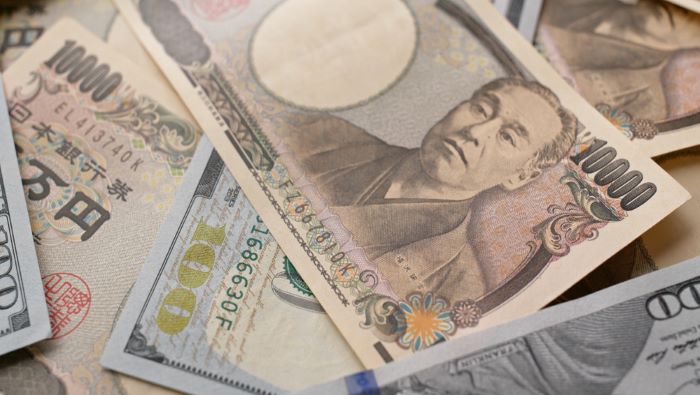ECB Presidential Elections 2019 - Talking Points:
- Mario Draghi’s successor will face many challenges including Brexit, sluggish growth and low inflation
- The redistribution of power in the Eurozone after the European Elections has increased the threat of populist Euro-sceptic parties
- There’s a high chance the Euro will become more volatile following the elections
- The current top five candidates are French, Finnish and German
The European Central Bank, one of the seven institutions of the European Union which oversees setting the monetary policy in the Eurozone, is looking for a new leader as current President Mario Draghi will be stepping down on October 31 after eight years as the head of the EU’s monetary regulator.
What are the responsibilities of the new ECB Chairman?
In the last few years, and especially after the euro crisis, the ECB has been picking up the pieces in the Eurozone and steering the economy on the path back to sustained growth and target inflation. That job is still not done yet and the new incumbent will need to be well versed in how to boost growth and inflation without loosening monetary policy even further.The current salary for the role is EUR 396,900 per annum.
The new ECB President will also have to face the fallout from the UK’s planned exit from the EU scheduled for the end of October, ongoing trade tensions with US President Donald Trump and the Eurozone’s sluggish economic recovery and persistently low inflation. The ECB leader must be politically neutral to meet the demands and resist the pressures of different national governments all looking at their own agendas. The ECB’s objective is to roll out a monetary policy strategy that fits the interests of the Eurozone as a whole, while considering each member states circumstances. If the ECB fails to consider individual players the system is at risk, especially with the threat of populist Euro-sceptic parties continuing to grow.
While EU centre-right parties held their ground against populists in the recent European Parliamentary Elections, it was mostly thanks to the gains from pro-EU Greens and Liberals, which poses a challenging time for traditional political groups eyeing the EU’s top job.
And as Italy has become one of the biggest drags on Eurozone growth, once Mario Draghi has stepped down the country could lose its position on the EU governing board as it may not be able to retain a seat. If it wasn’t for Draghi’s pledge to do ‘Whatever it Takes’ to save the Euro via an excessive and loose monetary policy, many member states, including Italy, would have faced a much bigger economic downturn than they did. If Mr. Draghi’s successor is German or French, then Italy will be able to retain a place on the boardbut if either of the Finish candidates succeed, Italy will be left out, giving it no responsibility in setting monetary policy.
The ECB presidency will be influenced by the results of the leadership contests for the top roles in both the European Commission and the European Council. Observers believe that if Germany does not have one of its members appointed to either of these jobs, it will push hard for a German candidate to become President of the ECB.
How will the ECB President Election affect the Euro?
Traders will be watching the ECB presidential election closely, looking for future clues for the path of monetary policy. Candidates with an easing or looser monetary bias will likely push the value of the single currency down further to fresh multi-month lows, while candidates with a hawkish bias may underpin the Euro around its current levels.
With the ECB likely to look at – and potentially use - new unconventional measures to boost growth and price pressures, the single currency may well become more volatile when the new ECB president takes the chair at the beginning of November.
Hawkish vs Dovish: How Monetary Policy Affects FX Trading
ECB President – Five of the Top Candidates
Who will replace Draghi? Below are the front-runners for the ECB presidency:
- François Villeroy de Galhau (France) – Governor of the French Central Bank
Mr Villeroy is currently seen as the front-runner for the job, particularly if Germany manages to secure a member as the European Commission President. He has continuously backed Mr. Draghi’s financial stimulus and believes that maintaining a low interest rate environment is completely justified and needed given the euro area’s economic situation. This would be welcomed by southern countries like France and Italy which prefer looser monetary policies but would clash with northern countries that prefer tighter policies, especially Germany who has previously complained that the low interest rates are hindering German savings.
- Benoît Cœuré (France) – Executive Board Member of the ECB
Mr. Cœuré is highly experienced in financial markets and was one of the architects behind the ECB’s quantitative easing programme. Northern European states could see the appointment of a French ECB president as giving to much support to indebted southern countries.
- Olli Rehn (Finland) - Governor of the Bank of Finland
Mr. Rehn’s focus is mainly on the inflation target, with the belief that central banks should do more to stimulate economic growth rather than relying on the central bank to lower interest rates and pump money in to the economy to increase bank borrowing. He believes the inflation target, which was last set in 2003, needs to be revised as the economic and political situation of the Eurozone has changed
- Erkki Liikanen (Finland) – Retired Central Bank Governor
Mr. Liikanen, who is believed to be one of the most likely candidates together with France’s Villeroy, would bring many years of experience to the job. He has held various titles within the European commission and was part of a group of experts that outlined a set of reforms needed for the EU banking sector in 2012. The two Finnish candidates are expected to have a more hawkish stance than Mr. Draghi and the two French candidates, with the possibility of future rate hikes.
- Jens Weidmann (Germany) - Chief of the Bundesbank
The election of Mr. Weidmann could be controversial to southern countries like Italy and France as he was a fierce opposer of Draghi’s loosening monetary policies including quantitative easing and low interest rates. Although in recent weeks he has defended the use of the ECB’s expansionary monetary policy saying that economic growth would have been weaker without it, maybe a way to redeem himself from the mistrust he faces in southern Europe. He could end the low interest rate policy in the Eurozone which would increase the value of savings for German savers.
Despite differences on how and when to use them, all the candidates accept that the central bank’s unconventional monetary policies, including asset purchases and negative interest rates, have now become a norm. And whilst governments in the south are perceived to be more dovish, preferring ongoing monetary stimulus and low interest rates, governments in the north of Europe are perceived to be more hawkish preferring higher interest rates and tighter monetary policies, meaning that the nationality of the new president may well be a factor when setting Eurozone monetary policy in the future.
Recommended Reading
Hawkish vs Dovish: How Monetary Policy Affects FX Trading – David Bradfield, Markets Writer
Eurozone Debt Crisis: How to Trade Future Disasters – Martin Essex, MSTA, Analyst and Editor
KEY TRADING RESOURCES:
- Just getting started? See our beginners’ guide for FX traders
- Having trouble with your strategy? Here’s the #1 mistake that traders make
- See our Q3 forecasts to learn what will drive FX the through the quarter.
--- Written by Daniela Sabin Hathorn, Junior Analyst






